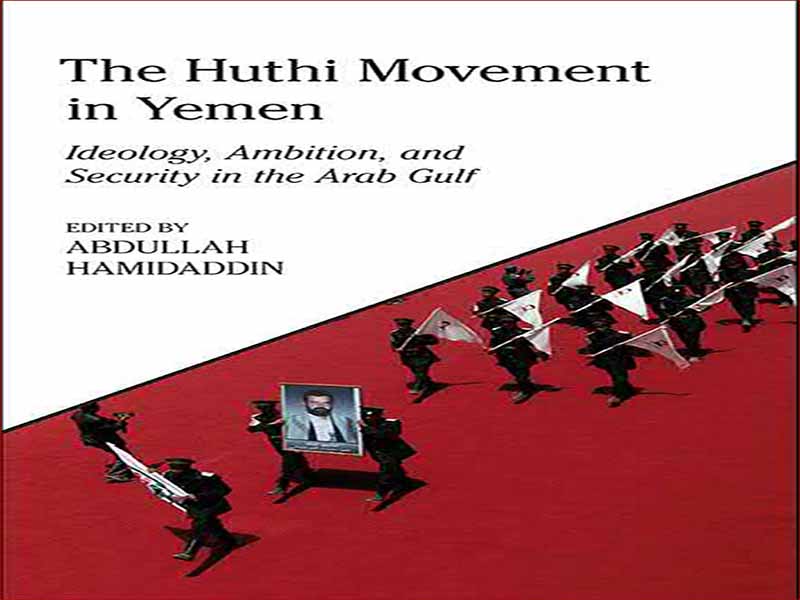- عنوان کتاب: THE HUTHI MOVEMENT IN YEMEN
- نویسنده: Abdullah Hamidaddin
- حوزه: خاورمیانه
- سال انتشار: 2022
- تعداد صفحه: 313
- زبان اصلی: انگلیسی
- نوع فایل: pdf
- حجم فایل: 11.9 مگابایت
حوثیها – که ترجیح میدهند خود را انصارالله (حامیان الله) معرفی کنند – بازیگری شبه دولتی هستند که یک ائتلاف سیاسی و جنبش اجتماعی با هسته قوی شبهنظامی و ایدئولوژی اسلامگرایانه و ضد آمریکایی رهبری میکنند. آغاز آن را می توان در ژانویه 2002 دنبال کرد، زمانی که حسین الحوثی از مسلمانان در همه جا خواست تا پس از تهاجم به افغانستان (در سال 2001) علناً ایالات متحده و اسرائیل را محکوم کنند. او معتقد بود که این تهاجم مقدمه مرحله جدیدی از کنترل آمریکا بر منطقه است، مرحله ای که قاطعانه تر و تهاجمی تر از دوران جنگ سرد خواهد بود و به نفع اسرائیل و تضعیف اعراب و مسلمانان در سراسر خاورمیانه خواهد بود. برای الحوثی، 3 شرط ضروری برای جلوگیری از این هژمونی احتمالی آمریکا، افزایش آگاهی در مورد نقشه های ایالات متحده، بسیج دولت ها و مردم مسلمان برای رد درخواست های ایالات متحده، و احیای نقش قرآن در امت اسلامی بود. او شعار «خدا بزرگ است. مرگ بر آمريكا. مرگ بر اسرائیل. لعنت بر یهود. پیروزی اسلام است.»4 الحوثی به تعداد اندک شاگردان خود دستور داد که در هر فرصت ممکن این شعار را تکرار کنند، مخصوصاً در مساجد پس از نمازهای جمعی. او همچنین از خانهاش در مران، روستای کوچکی در هفتاد کیلومتری غرب صعده، خطبهها را ایراد کرد. خطبه ها ضبط و از طریق نوار کاست در شهرهای مختلف شمال بالای یمن پخش شد. خطبه ها که برای مخاطب عام بود، بر تهدیدی که آمریکا ایجاد می کند، وضعیت مظلوم مسلمانان و تجویز الحوثی – یعنی حمایت از قرآن به تعبیر صحیح آن در زندگی روزمره مسلمانان – تأکید می کرد. در خطبه های او چیزی منحصر به فرد یا متفاوت با آنچه بسیاری از اسلام گرایان رادیکال در منطقه به آن اعتقاد دارند یا آن را بیان می کنند، وجود نداشت. آنچه الحوثی را متمایز می کرد، تشویق قاطع او از شاگردان و مخاطبانش بود که علناً شعار فوق الذکر را سر دهند. به زودی دیده شدن مردان جوان، عمدتاً زیر هجده سال، که این شعار را در مساجد صنعا و صعده پس از نماز جمعه یا دیگر اجتماعات آیینی سر می دهند، رایج شد. یکی از اولین برچسب هایی که به حسین و پیروانش داده شد، «اصحاب الشیعار» بود. دولت یمن به شعارهای مردمی با دستگیری واکنش نشان داد، که تنها حسین و گروه رو به رشد پیروانش را متقاعد کرد که این شعار مؤثر بوده و ایالات متحده آن را تهدیدی برای حضور خود در منطقه میداند. یک چیز منجر به دیگری شد و در سال 2004، رئیس جمهور یمن علی عبدالله صالح تصمیم گرفت حسین الحوثی را دستگیر کند. او در مقابل دستگیری مقاومت کرد، در عوض داوطلب شد به صنعا سفر کند تا شخصاً با رئیس جمهور صالح ملاقات کند، به شرطی که آسیبی به او وارد نشود. صالح این پیشنهاد را رد کرد و پس از چند میانجیگری ناموفق، یک رویارویی نظامی محدود بین نیروهای دولت و حسین و پیروانش روی داد که منجر به مرگ او در سپتامبر 2004 شد. شاید این پایان کار بود، اما وضعیت در بالادستی شمال یمن از قبل آماده رویارویی گسترده تر با دولت بود. اقتصاد محلی در وضعیت سختی قرار داشت و ناامیدی جوامع اطراف صعده به آستانه نزدیک میشد.6 در این زمینه، صالح تصمیم گرفت به دنبال پدر حسین، بدرالدین الحوثی، و برادر کوچکتر، عبدالملک آل، برود. – حوثی و سایر پیروان وفادار. نتیجه پنج رویارویی نظامی دیگر بین سالهای 2005 و 2010 بود که بسیار ویرانگرتر از درگیری اولیه بود، منطقه جغرافیایی وسیعتری را در بر گرفت و پیامدهای جانبی غمانگیزی به همراه داشت. حوثی ها از جنگ ها جان سالم به در بردند و تحت رهبری عبدالمالک الحوثی به یک نیروی نظامی مهیب تبدیل شدند. حسین الحوثی ممکن است محرک حوادثی باشد که منجر به رویارویی با دولت یمن شد، اما تأسیس جنبش به طور دقیقتر به برادر کوچکتر او نسبت داده میشود.
The Huthis—who prefer to refer to themselves as Ansar Allah (supporters of Allah)2—are a quasi-state actor leading a political coalition, and social movement with a strong paramilitary core and an Islamist, anti-American ideology. Its beginnings can be traced to January 2002, when Husayn al-Huthi called on Muslims everywhere to publicly denounce the United States—and Israel—in the aftermath of the invasion of Afghanistan (in 2001). He believed that the invasion was the prelude to a new phase of American control of the region, one that would be more assertive and aggressive than during the Cold War, benefiting Israel and undermining Arabs and Muslims across the Middle East. For al-Huthi,3 a necessary condition to avert this prospective American hegemony was to raise awareness on US plans, mobilize Muslim states and publics to reject US entreaties, and revitalize the role of the Quran in the Muslim umma. He adopted the slogan “God is Great. Death to America. Death to Israel. Cursed be the Jews. Victory be to Islam.”4 Al-Huthi enjoined his then small number of disciples to repeat the slogan at every possible opportunity, especially in mosques after communal prayers. He also gave sermons from his home in Marran, a small village about seventy kilometers west of Sa’ada. The sermons were recorded and disseminated via cassette tape to different cities in the upper north of Yemen. Meant for a general audience, the sermons emphasized the threat America posed, the downtrodden situation of Muslims, and al-Huthi’s prescription—namely, to uphold the Quran, in its proper interpretation, in Muslims’ daily lives. Little in his sermons was something unique or different from what many radical Islamists in the region believe or pronounce.5 What marked out al-Huthi as distinctive was his emphatic encouragement of his disciples and audience to publicly chant the aforementioned slogan. Soon it became common to see young men, mostly under eighteen years of age, chanting the slogan in mosques in Sanaa and Sa’ada after Friday prayers or other ritual gatherings. One of the early labels given to Husayn and his followers was As-hab al-Shi’ar (People of the Slogan). The Yemeni government reacted to the public chanting with arrests, which only convinced Husayn and his growing band of followers that the slogan was effective and that the United States perceived it as a threat to its presence in the region. One thing led to another, and in 2004, Yemen’s President Ali Abdullah Saleh decided to arrest Husayn al-Huthi. He resisted arrest, instead volunteering to travel to Sanaa to meet President Saleh in person on the condition that he not be harmed. Saleh rejected the offer, and after several failed mediations, a limited military confrontation took place between the government’s forces and Husayn and his followers, leading to his death in September 2004. This might have been the end of it, but the situation in the upper north of Yemen was already ripe for a broader confrontation with the government. The local economy was in dire straits, and the frustration of the communities around Sa’ada was approaching a threshold.6 Against this backdrop, Saleh decided to go after Husayn’s father, Badr al-Din al-Huthi, and younger brother, Abdulmalik al- Huthi, and other loyal followers. The result was five more military confrontations between 2005 and 2010, which were much more devastating than the initial clash, covered a wider geographic area, and brought tragic collateral consequences. The Huthis survived the wars and, under the leadership of Abdulmalik al-Huthi, grew to become a formidable military force. Husayn al-Huthi may have been the instigator behind the events leading to the confrontation with the Yemeni government, but the founding of the movement is more accurately attributed to his younger brother.
این کتاب را میتوانید از لینک زیر بصورت رایگان دانلود کنید:
Download: THE HUTHI MOVEMENT IN YEMEN



































نظرات کاربران